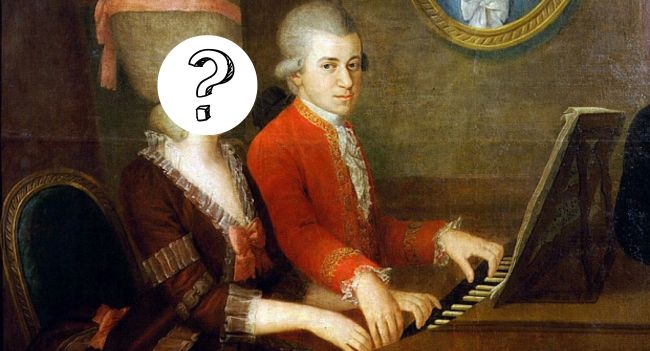It can be difficult having a sibling who is a high achiever but imagine if that sibling was Wolfgang Amadeus Mozart, the child prodigy, composer, and multi-instrumentalist with an unquantifiable talent that would astound the world with his genius. By the time he died at 35, he had composed over 800 pieces of music and is recognised as one of the most important and influential cultural figures in Western music. But what you may not know is that Mozart had an equally talented sister who, because of her gender, would never get to realise her musical gift and remains widely unknown to this day.
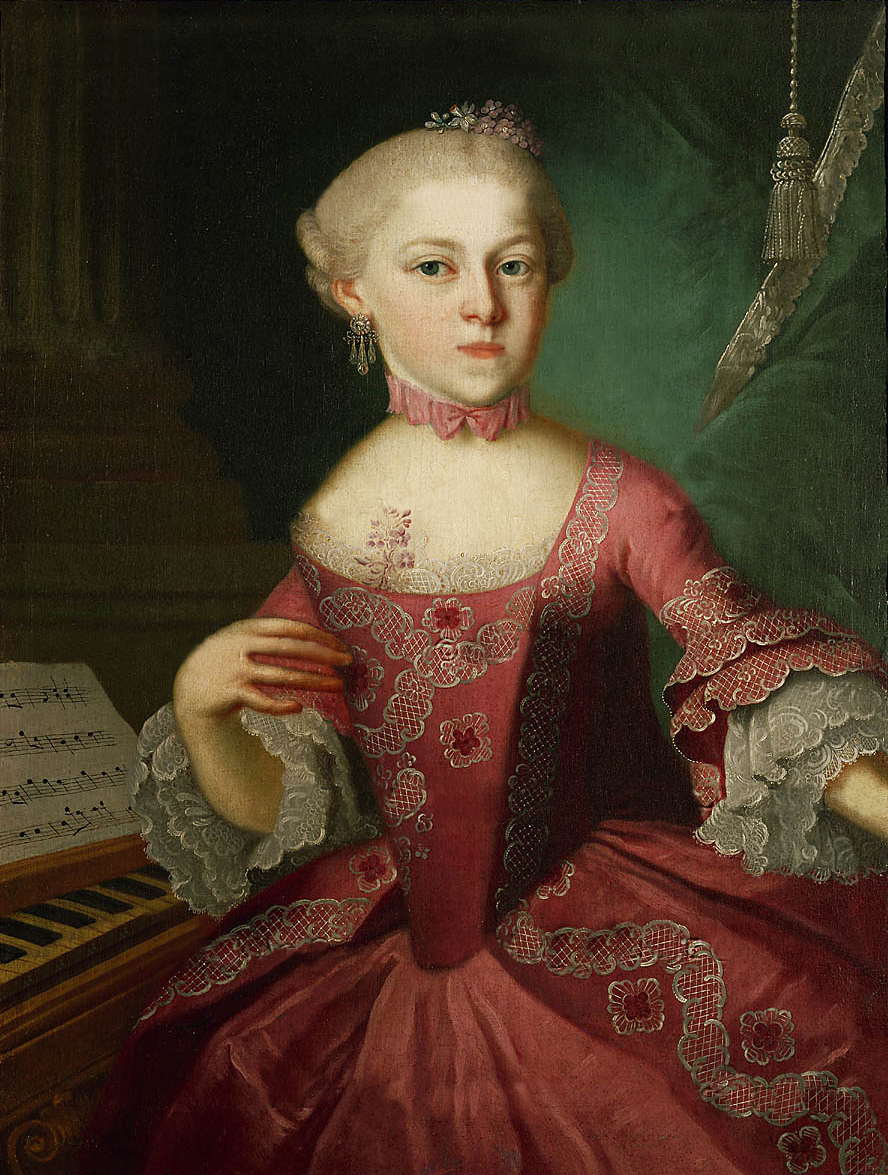
Maria Anna Walburga Ignatia Mozart was Wolfgang’s older sister by 5 years, born in 1751 in Salzburg, Austria. She was one of seven children but only two would live through infancy. Maria, known as ‘Nannerl’ by her family, would show great musical promise from an early age. Her father Leopold was a renowned composer and violinist in his own right and had decided that his eldest and only remaining daughter would benefit from his musical tuition. At age 7, Maria would begin on the harpsichord and fortepiano and in a relatively short space of time had become an accomplished pianist. Maria’s playing would awaken the musician in a very young Wolfgang, and like a toy (or a talent) possessed by an older sibling that must be obtained for himself, he would begin to play himself.
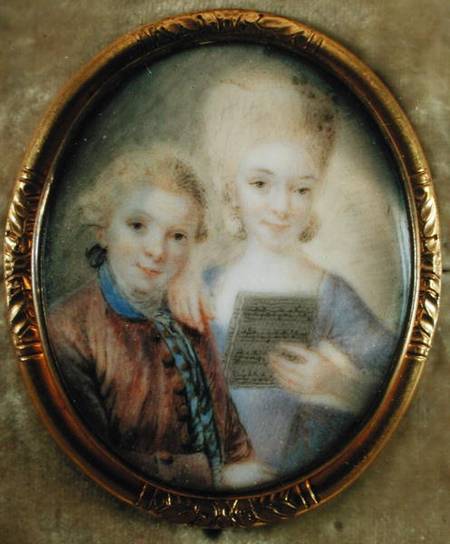
Leopold realised what astonishing talents he had cultivated in his children, and as a spectacle of curiosity decided in 1762 to embark on a tour of western Europe. Maria was 11 years old and Wolfgang just 7. They would be billed as ‘wunderkinder’ child prodigies and showcased at the royal courts for the noble and elite. Traversing western Europe for the next 3 years, where Maria would often have higher billing than her brother, an article published in 1763, described the skill and prowess she possessed in her musical abilities:
“Interpreting the greatest maestros’ most difficult sonatas and concertos on the harpsichord with great clarity, inexpressible lightness, skill, and style. It was a source of wonder to many.”
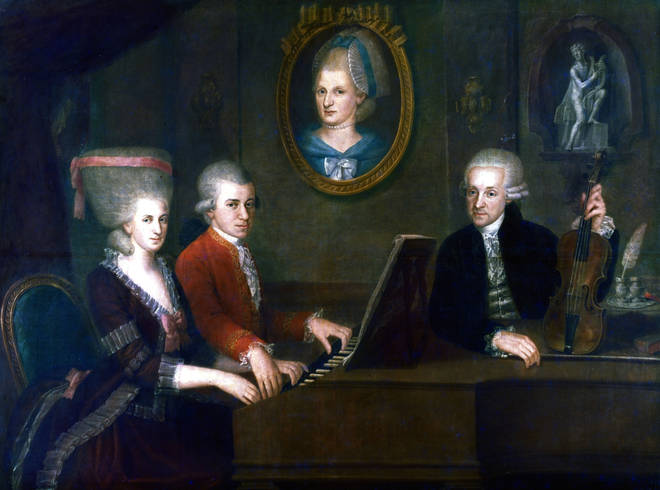
Have a listen to a piece they would have performed together, credited as composed by Wolfgang Mozart between 1762 and 1764:
The arduous touring schedule would continue as their fame grew and private public displays of the young Mozart’s ethereal talent were attended all over Europe. Leopold was a domineering figure and architect of their presents and futures. In a letter dated 1764, Leopold wrote of his daughter:
‘My little girl plays the most difficult works which we have … with incredible precision and so excellently, what it all amounts to is this, that my little girl, although she is only 12 years old, is one of the most skillful players in Europe.”
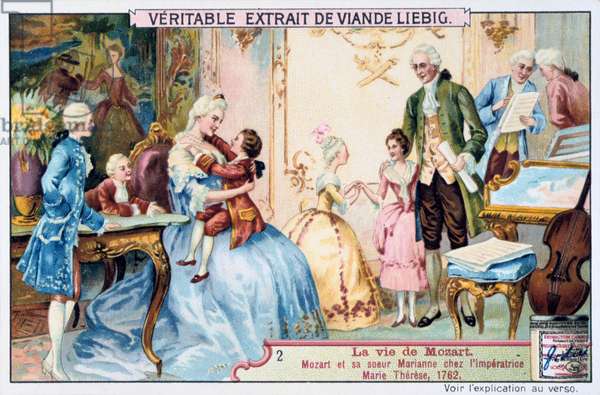
In 1769, Maria turned 18, and this would be the turning point in her life, as she was now of marriageable age, it would raise many eyebrows if she were to continue to tour and play alongside her brother. Maria was living in an age where control of her life would be passed from her father to her husband. Her life would become dependent on her suitor; her rights and her dreams would be subject to societal laws imposed by her betrothal.
In childhood, Maria And Wolfgang had been incredibly close as the remaining siblings of a once large family; the tragic loss of their brothers and sisters had drawn them together in music and fantasy. They had their own secret language that they would communicate, as sometimes children do when faced with trauma. They were king and queen of their own secret world, but their real language was music. In 1764, Maria helped Wolfgang transcribe his first symphony while staying in London. They shared such an extraordinary talent that bonded them together in youth. Creative collaboration must have been a regular occurrence in the years together from infants to young adults; the thousands of hours of practice and performance had created a bond, a musical companionship that would now be severed.
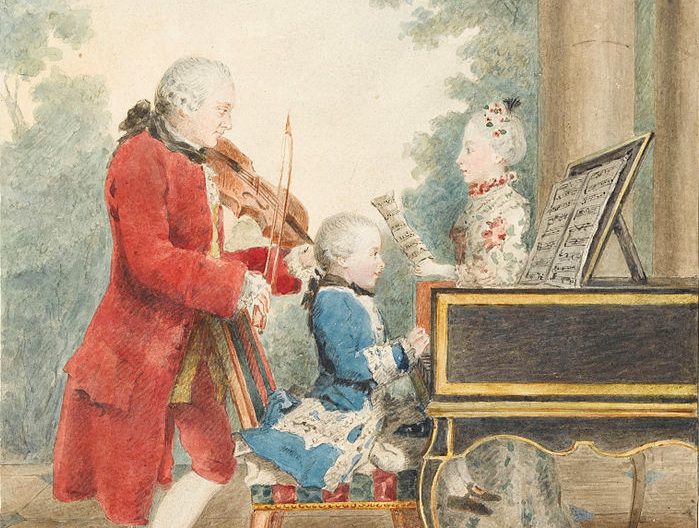
Maria was expected to stay at home with her mother until an adequate suitor was found. While her brother’s fame and virtuosity only increased. She continued to play and compose in private and would receive Wolfgang’s latest pieces of music as he continued to tour Europe. It’s hard to define just what influence Maria had on her younger brother as so much of her life and work is not known. Wolfgang’s star has shone so bright as to cast Maria’s talents into the corners of shadowy obscurity. What remains is correspondence between the family members in the form of letters that give us a glimpse of her life.
“I am amazed to find how well you can compose. In a word, the song is beautiful. Try this more often.” Wolfgang wrote Maria after she sent him her latest composition. It seems he was highly impressed and encouraging. We don’t know just how much work Maria produced; if she was anywhere as prolific as Wolfgang; but her oeuvre may have been extensive.
A piece from Maria’s music book:
There has been speculation in classical academia that some of Wolfgang’s work may have even been Maria’s. Decades later, female writers such as Jane Austen and The Bronte sisters would adopt male nom de plumes in order to be published. Was Wolfgang secretly helping Marias’ music to be played and appreciated by all? Sadly we will never know, and as time went by and Wolfgang became the pop star of his era, they began to lose touch. Maria had eventually married at 33, quite late for the time. Her father had rejected an earlier suitor whom it is said Maria loved. Leopold may have gotten used to having her around after her mother had died and wasn’t ready to relinquish control just yet.
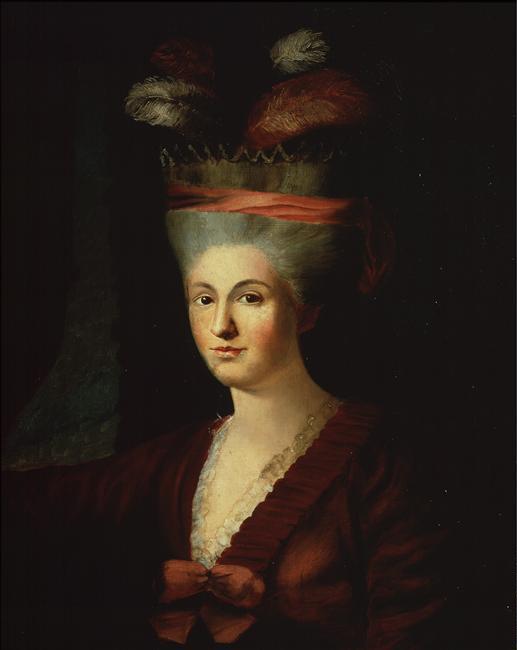
Her betrothed was Johann Baptist von Berchtold zu Sonnenburg, a magistrate twice widowed, and father of 5. Maria would be expected to take control of the household and raise the children. Wolfgang’s own fast and chaotic lifestyle had resulted in a marriage that was not approved of by Leopold, estranging him further from the family. Maria would go on to have three children of her own with Johann, one of who was deposited for Leopold to look after. It is not known whether this was for convenience’s sake or if her father was trying to train another child prodigy in the family.
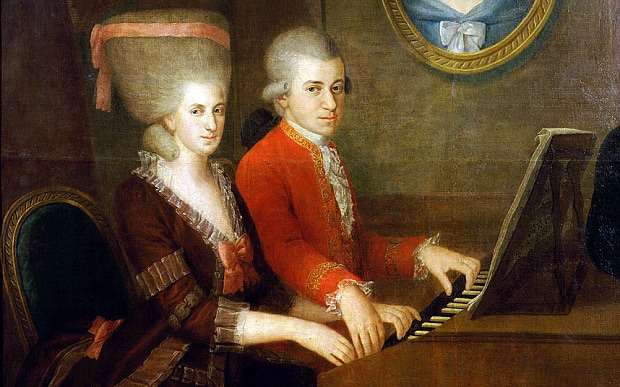
In 1787, Leopold died at which time Wolfgang and Maria briefly resumed correspondence until Mozart’s untimely death in 1791. Maria became instrumental in realising her brother’s legacy, contributing to biographies and supplying primary source material in the form of family letters and his collected works with Wolfgang’s widow Constanze. This act of love and appreciation is one of the reasons her brother’s works are so well known and his life is as celebrated as it is. After Maria’s husband passed in 1801, she moved back to Salzburg and worked as a music teacher, sharing her passion and artistry for music with others. Maria Anna Walburga Ignatia Mozart passed away in 1829 at age 78. Her love of music had never waned and she had played every day throughout her life. If she did compose again later in life, none of her work can be found. Maybe it’s waiting to be discovered or we already know some of it, Maria’s real concerto it seems would be her pitted against the period she lived through.
The “Maria Anna Mozart Society Salzburg” in honor of W. A. Mozart’s sister was founded to research, publish and interpret as well as promote the reception of works by unknown and well-known female composers of the past. Visit us on Facebook and find out about our current concerts in Salzburg!
